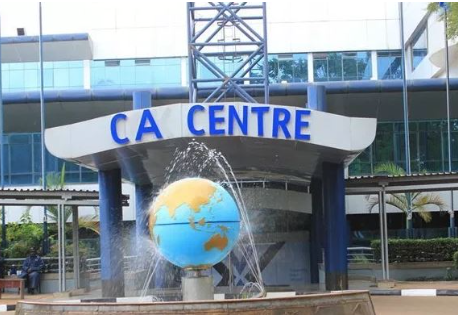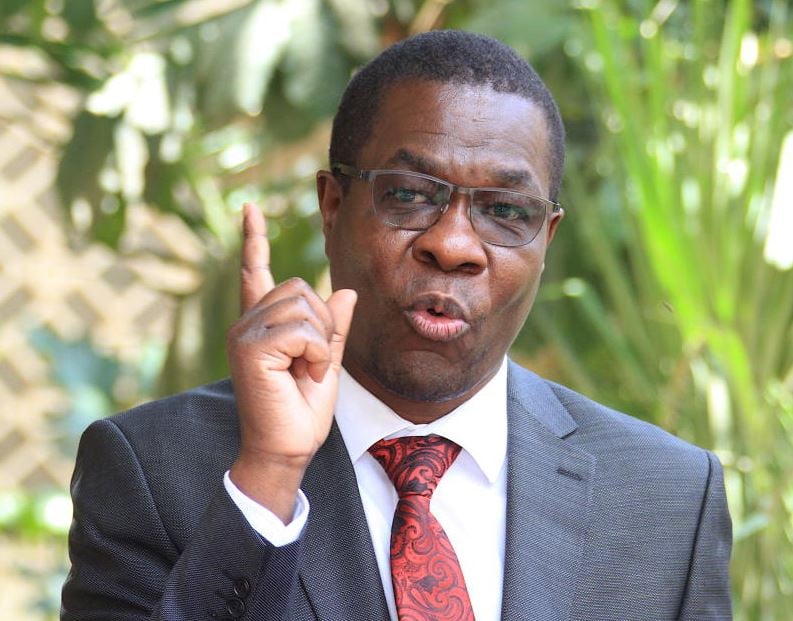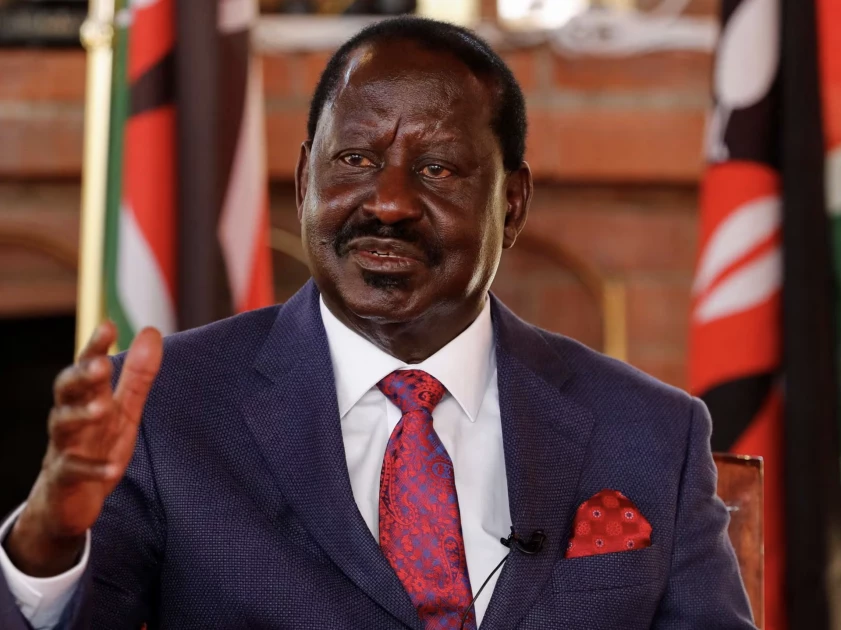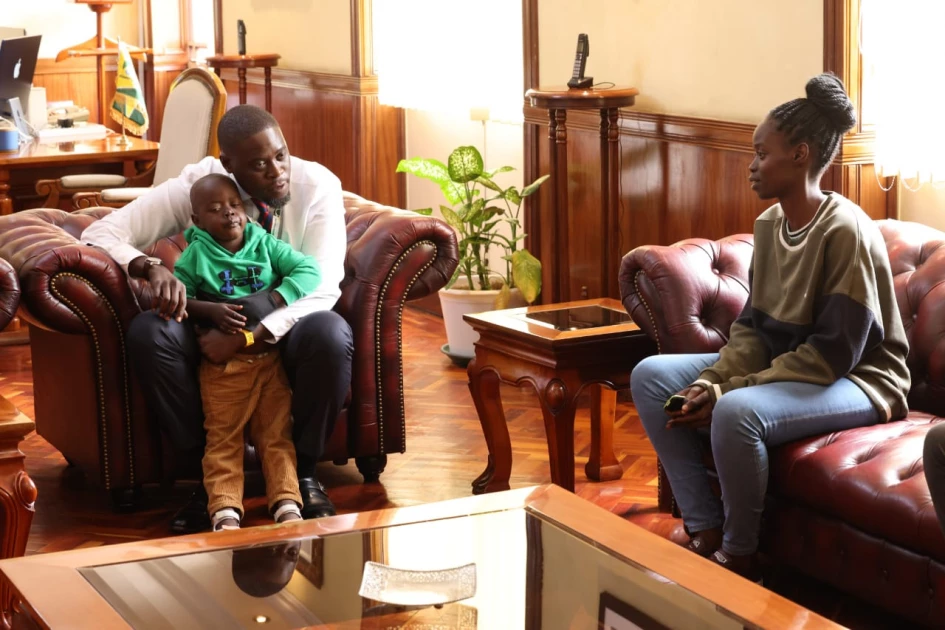Gachagua Responds to Claims That He Demanded Ksh 10 Billion From Ruto
Regardless of whether Gachagua sought Ksh10 billion or Ruto proposed Ksh2 billion, the absence of proof leaves the truth elusive. Kenyans are stuck with a recurring theme—leaders exchanging accusations while pressing issues like unemployment and healthcare go unaddressed. This dispute highlights a vital lesson: trust in governance depends on openness, not mere words. Without evidence from either party, citizens remain onlookers in a tense standoff of claims and counterclaims. As the nation observes, a key question looms: could this moment spark a shift toward accountability, or will it simply fade into Kenya’s long history of political drama?
On March 31, 2025, Kenya’s political landscape was once again thrust into the spotlight when President William Ruto made a startling accusation: his former deputy, Rigathi Gachagua, had allegedly demanded a staggering Ksh10 billion from him. This claim, reported widely across Kenyan media, has reignited tensions between the two leaders, who have been embroiled in a bitter fallout since Gachagua’s impeachment in October 2024. However, Gachagua was quick to respond, vehemently denying the allegations and turning the tables by accusing Ruto of offering him Ksh2 billion to step down quietly—a counterclaim that has added yet another layer of intrigue to this unfolding drama.
As of April 1, 2025, this saga has captured the attention of Kenyans, sparking debates across social media platforms, newsrooms, and tea stalls alike. But what is the truth behind these explosive claims? Is this a case of political mudslinging, a desperate bid to tarnish reputations, or a glimpse into the shadowy dealings at the heart of Kenya’s leadership? Let’s dive into the details, dissect the narratives, and explore what this means for the country’s political future.
The accusation first surfaced when President Ruto, speaking publicly, suggested that Gachagua had attempted to extort Ksh10 billion from him—an amount equivalent to roughly $77 million USD at current exchange rates. Ruto framed this as an act of blackmail, implying that his refusal to cave into these alleged demands contributed to the rift that ultimately led to Gachagua’s ouster. The timing of the statement is notable: it comes months after Gachagua’s impeachment, a process Ruto has distanced himself from, claiming he “didn’t sign any documents” to orchestrate it. Yet, the specificity of the Ksh10 billion figure raised eyebrows—how could Ruto know such a precise amount if no formal evidence or documentation has been presented?
For many Kenyans, this lack of substantiation has cast doubt on the president’s narrative. Posts on X, Kenya’s bustling hub of real-time commentary, reflect a mix of skepticism and intrigue. One user pointed out the contradiction: if Ruto wasn’t directly involved in the impeachment, how could he be privy to such a detailed financial demand? Others see it as a calculated move to discredit Gachagua further, especially as the former deputy remains a vocal critic of the administration post-impeachment.
Gachagua’s Rebuttal: A Counter-Accusation
Rigathi Gachagua, never one to shy away from a fight, wasted no time in responding. In a statement that made on his X page, he categorically denied demanding Ksh10 billion from Ruto. Instead, he flipped the script, alleging that it was Ruto who had approached him with an offer—Ksh2 billion to quietly exit his role as deputy president and abandon his political ambitions. According to Gachagua, he rejected this proposal outright, choosing instead to focus on serving Kenyans rather than engaging in what he described as “monetary games.”
This counterclaim shifts the narrative significantly. If true, it paints Ruto as the instigator of a financial deal, potentially undermining his public stance against corruption and blackmail. Gachagua’s insistence that his priority was service over money aligns with his public persona during his tenure—a staunch defender of the “hustler” narrative that propelled the Kenya Kwanza coalition to victory in 2022. Yet, like Ruto’s accusation, Gachagua’s response lacks concrete evidence beyond his word, leaving Kenyans to weigh the credibility of two conflicting accounts.
The Political Context: A Fractured Alliance
To understand this clash, we must rewind to the heady days of the 2022 election. Ruto and Gachagua, then allies under the United Democratic Alliance (UDA), campaigned as a united front, promising to uplift the downtrodden and transform Kenya’s economy. Gachagua, with his fiery rhetoric and deep roots in the vote-rich Mount Kenya region, was instrumental in securing Ruto’s victory. Their partnership, however, began to fray soon after taking office, with reports of policy disagreements and power struggles surfacing by mid-2023.
The tipping point came in October 2024, when Gachagua was impeached by the National Assembly on charges including gross misconduct and insubordination. The process was swift and contentious, with Gachagua’s allies crying foul, alleging it was a politically motivated purge orchestrated by Ruto’s inner circle. Ruto, for his part, has maintained that the impeachment was a parliamentary decision beyond his control—a stance that critics argue is disingenuous given his influence over UDA lawmakers.
The Ksh10 billion claim, emerging months later, appears to be Ruto’s attempt to justify this fallout retroactively. By portraying Gachagua as a greedy opportunist, Ruto may hope to sway public opinion and cement his narrative as a principled leader. Gachagua’s counter-accusation, however, suggests a different story: that Ruto sought to buy his silence, only to turn against him when the deal fell through.
Public Reaction: Skepticism and Division
Kenyans are no strangers to political theater, and this latest episode has elicited a predictable mix of cynicism, outrage, and amusement. On X, users have dissected both claims with a blend of humor and scrutiny. Some question the feasibility of such astronomical sums changing hands unnoticed, given Kenya’s robust anti-corruption mechanisms (at least on paper). Others wonder why, if these events occurred, no official records or witnesses have emerged to corroborate either side.
The absence of evidence has fueled speculation that both leaders are engaging in a war of words to rally their respective bases. Ruto’s supporters, including some MPs, have echoed his version of events, framing Gachagua as a liability who betrayed the Kenya Kwanza vision. Gachagua’s loyalists, particularly in Mount Kenya, see him as a victim of betrayal, a leader sacrificed for refusing to bend to Ruto’s will. This polarization risks deepening regional and political divides, a recurring challenge in Kenya’s history.
What Does the Evidence Say?
As of April 1, 2025, neither Ruto nor Gachagua has produced tangible proof to back their claims. The impeachment charges against Gachagua, detailed in parliamentary records, made no mention of a Ksh10 billion demand, suggesting that if such a conversation occurred, it was never formally documented. Similarly, Gachagua’s assertion of a Ksh2 billion offer remains anecdotal, reliant on his personal testimony rather than receipts or third-party confirmation.
This evidentiary vacuum leaves the public in a bind. In a country where corruption scandals have long eroded trust in leadership, Kenyans are left to judge based on character and context rather than facts. Ruto’s tenure has been marked by ambitious economic reforms but also criticism over transparency, while Gachagua’s outspokenness has earned him both admirers and detractors. Without documentation, the truth may remain elusive, buried beneath layers of political maneuvering.
Implications for Kenya’s Future
The Ruto-Gachagua feud is more than a personal spat—it’s a test of Kenya’s political maturity. At stake is the credibility of the Kenya Kwanza administration, which promised a break from the graft and infighting of past regimes. If these allegations are substantiated, they could expose a troubling underbelly of financial dealings at the highest levels. If they’re baseless, they highlight the lengths to which leaders will go to discredit rivals, undermining public faith further.
For Mount Kenya, Gachagua’s home turf, the saga carries additional weight. The region, a kingmaker in Kenyan politics, has felt sidelined since his exit, and his portrayal as a martyr could galvanize opposition to Ruto ahead of the 2027 elections. Conversely, Ruto’s ability to weather this storm and deliver on his promises—such as the ongoing Mount Kenya tour starting April 1, 2025—may determine whether he can retain the region’s support.
Conclusion: A Tale of Trust and Triumph
As the dust settles on this latest chapter, one thing is clear: the Ruto-Gachagua saga is far from over. Whether Gachagua demanded Ksh10 billion or Ruto offered Ksh2 billion, the lack of evidence keeps the truth tantalizingly out of reach. For now, Kenyans are left with a familiar refrain—politicians trading barbs while the nation’s challenges, from unemployment to healthcare, demand urgent attention.
This clash underscores a broader lesson: trust in leadership hinges on transparency, not just rhetoric. Until either side steps forward with proof, the public will remain spectators in a high-stakes game of he-said, he-said. As Kenya watches, the question lingers: will this be a turning point for accountability, or just another footnote in the annals of political intrigue?


.jpg)





-og_image.webp)




